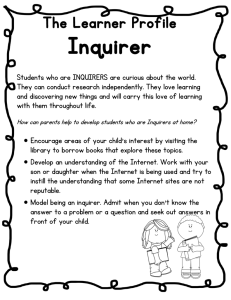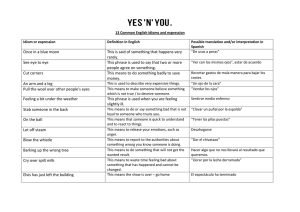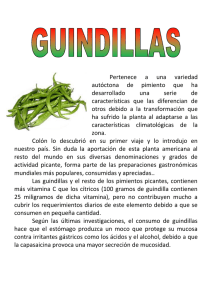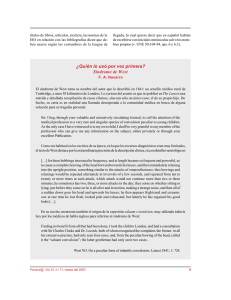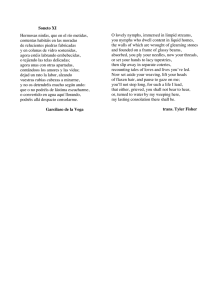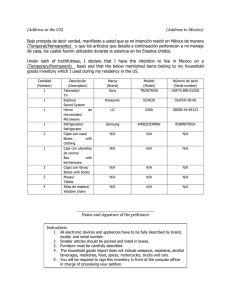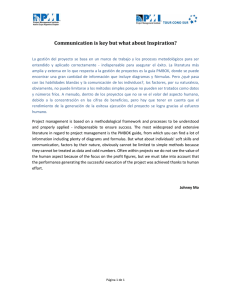My Ear hurts_#1-86
Anuncio
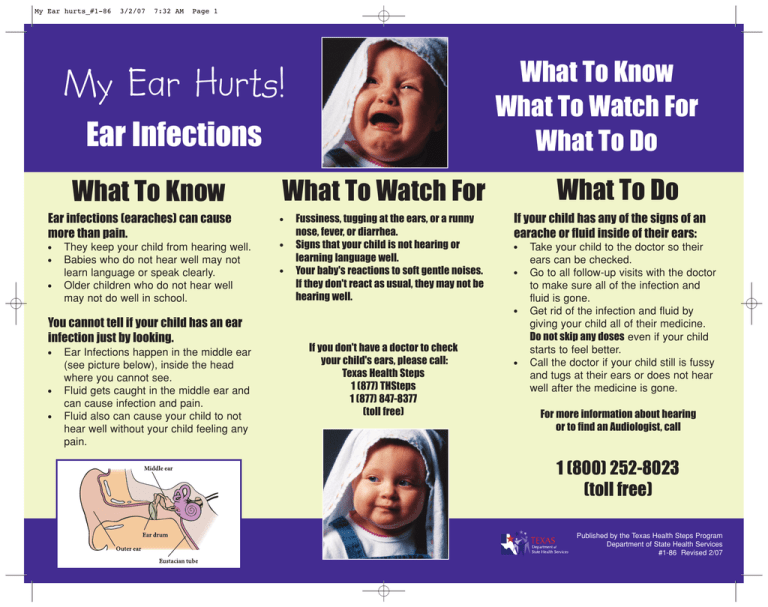
My Ear hurts_#1-86 3/2/07 7:32 AM Page 1 What To Know What To Watch For What To Do My Ear Hurts! Ear Infections What To Know Ear infections (earaches) can cause more than pain. ● ● ● They keep your child from hearing well. Babies who do not hear well may not learn language or speak clearly. Older children who do not hear well may not do well in school. What To Do What To Watch For ● ● ● Fussiness, tugging at the ears, or a runny nose, fever, or diarrhea. Signs that your child is not hearing or learning language well. Your baby's reactions to soft gentle noises. If they don't react as usual, they may not be hearing well. If your child has any of the signs of an earache or fluid inside of their ears: ● ● ● You cannot tell if your child has an ear infection just by looking. ● ● ● Ear Infections happen in the middle ear (see picture below), inside the head where you cannot see. Fluid gets caught in the middle ear and can cause infection and pain. Fluid also can cause your child to not hear well without your child feeling any pain. If you don't have a doctor to check your child's ears, please call: Texas Health Steps 1 (877) THSteps 1 (877) 847-8377 (toll free) ● Take your child to the doctor so their ears can be checked. Go to all follow-up visits with the doctor to make sure all of the infection and fluid is gone. Get rid of the infection and fluid by giving your child all of their medicine. Do not skip any doses even if your child starts to feel better. Call the doctor if your child still is fussy and tugs at their ears or does not hear well after the medicine is gone. For more information about hearing or to find an Audiologist, call 1 (800) 252-8023 (toll free) Published by the Texas Health Steps Program Department of State Health Services #1-86 Revised 2/07 My Ear hurts_#1-86 3/2/07 7:32 AM Page 2 ¡Me duelen los oídos! Qué debe saber En qué se debe fijar Qué hacer Infección del Oído Cosas en las debe fijarse Qué hay que saber Las infecciones en los oídos (dolor de oídos) pueden causar más problemas que simplemente dolor. ● ● ● Evitan que su hijo oiga bien. Los bebés que no oyen bien podrían no aprender el lenguaje o no hablar que claramente. A los niños más grandes que no oyen bien, no les irá bien en la escuela. Usted no puede darse cuenta que el niño tiene una infección en el oído tan sólo con mirar. ● ● ● Las infecciones de oído se dan en el oído medio (vea la foto a continuación), dentro de la cabeza, donde usted no puede verlas. Los fluidos son atrapados en el oído medio y pueden causar una infección y dolor. Los fluidos puieden causar que su hijo no oiga bien sin que sienta dolor alguno. ● ● ● Irritabilidad, que se tire de las orejas, catarro, fiebre o diarrea. Signos de que su hijo no oye bien ni aprende el lenguaje apropiadamente. Las reacciones de su bebé hacia los sonidos suaves. Si no reacciona como deberían, puede ser que no esté oyendo bien. Si no tiene un médico que examine los oídos de su hijo, por favor llame a: Texas Health Steps 1 (877) THSteps 1 (877) 847-8377 (Llamada gratuita) Qué hacer Si su hijo tiene alguna de las señales de dolor o de fluido dentro de los oídos: ● ● ● ● Lleve a su hijo al médico para que revise sus oídos. Vaya a las consultas médicas de seguimiento para asegurarse que la infección haya sido curada o los fluidos eliminados. Eliminar la infección y los fluidos dándole a su hijo toda la medicina. No se olvide de ninguna de las dosis, aún si el niño comienza a sentirse mejor. Llame al médico si el niño sigue estando irritable o si se tira de las orejas o si no oye bien después de que termine la medicina. Para mayor información sobre la audición o para encontrar un audiólogo, llame al 1 (800) 252-8023 (Número gratuito) Published by the Texas Health Steps Program Department of State Health Services #1-86 Revised 2/07
